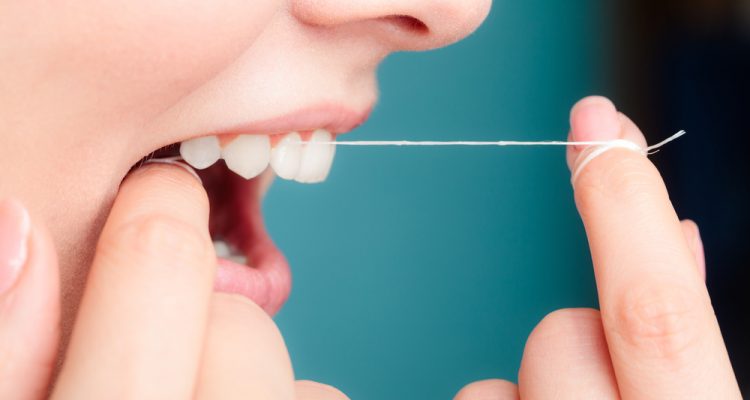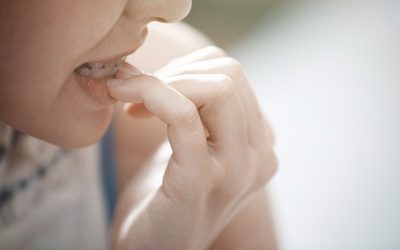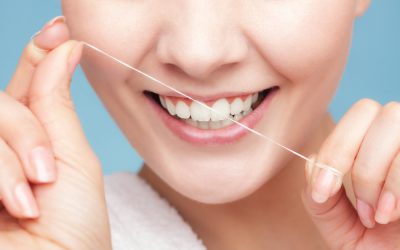It’s easy to find an excuse not to floss: it takes too long, you have sensitive gums, or flossing isn’t necessary because you don’t see any plaque buildup on your teeth. But the American Dental Association (ADA) states that flossing or using other interdental cleaners is an essential part of taking care of your teeth and gums. Even if it’s not visible to you, plaque, debris, and food particles are lurking in the spaces between your teeth where the toothbrush can’t reach.
Everyone should include flossing as one of their daily habits. Today, there are more choices than ever for floss – waxed, unwaxed, flavored, and even electric flossers.
- If you have sensitive gums or gums that bleed easily, choose a soft floss and guide the string between your teeth gently.
- If you have dental hardware like braces, choose a special floss that has a stiff end to thread through the brackets.
- If you have poor hand mobility, choose an electric flosser, which doesn’t require you to manually manipulate the floss.
- If you need to floss on the go, choose disposable flossers or floss picks that can be tucked away in your bag and thrown out after use.
Keep reading to learn more about how flossing can help protect your oral health.
The Importance of Flossing
Your toothbrush can’t reach all the nooks and crannies in your mouth. But the spaces between your teeth and around your gums are the easiest areas for plaque and food particles to get stuck and linger. Over time, plaque buildup on your teeth and gums can cause tooth decay, cavities, mild gum disease (gingivitis), or severe gum disease (periodontitis). Flossing helps cavities and gum disease because thin floss can slip between teeth and under the gum line to remove food, plaque, and debris left behind in your mouth.
Because flossing requires you to get up close and personal with the inside of your mouth, the time you spend flossing can also be a valuable time for a self-exam. As you work the floss in and around your teeth and gums, be alert to any new or unusual pain, redness, swelling, bleeding, or lesions in your mouth.
When and How to Floss
The ADA recommends flossing or using another type of interdental cleaner once a day. Choose a time when you have a few minutes to devote to the task. Some people may prefer to floss in the morning because they feel too tired to do it at night. On the other hand, some people may prefer to floss before bed to save a few minutes during the morning rush. If you choose a time of day that fits with your schedule, you’re more likely to make flossing a daily habit.
When you floss, guide the string in a “C” shape around the edge of every tooth, including around the gums and across the back edges of your last set of molars. Proper technique is the most important part of flossing. The ADA has outlined how to floss correctly in a guide you can read here: 5 Steps to a Flawless Floss.
If you ever have questions about how to floss, ask your dentist to show you the proper technique. You should always floss gently, because snapping the floss against your gums could cause tissue damage. If you experience consistent pain or bleeding while flossing, contact your dentist.
How to Include Flossing in a Good Oral Hygiene Routine
Flossing alone isn’t enough to prevent cavities and gum disease. At home, you should brush your teeth twice a day for two minutes each using a soft-bristled toothbrush and fluoridated toothpaste. Floss once a day and consider using a fluoridated mouthwash once a day. Eat a balanced diet with fresh, whole foods and cut down on refined, processed, and sugary foods. Try to limit the number of times you snack during the day – constant snacking without brushing your teeth in between leads to plaque buildup in your mouth.
A good oral hygiene routine also includes visiting your dentist twice a year for professional cleanings and exams. Start your new year off with a smile by scheduling a cleaning with Dr. Boyett and her team of hygienists at Boyett Family Dentistry. Contact our office today to set your appointment.






